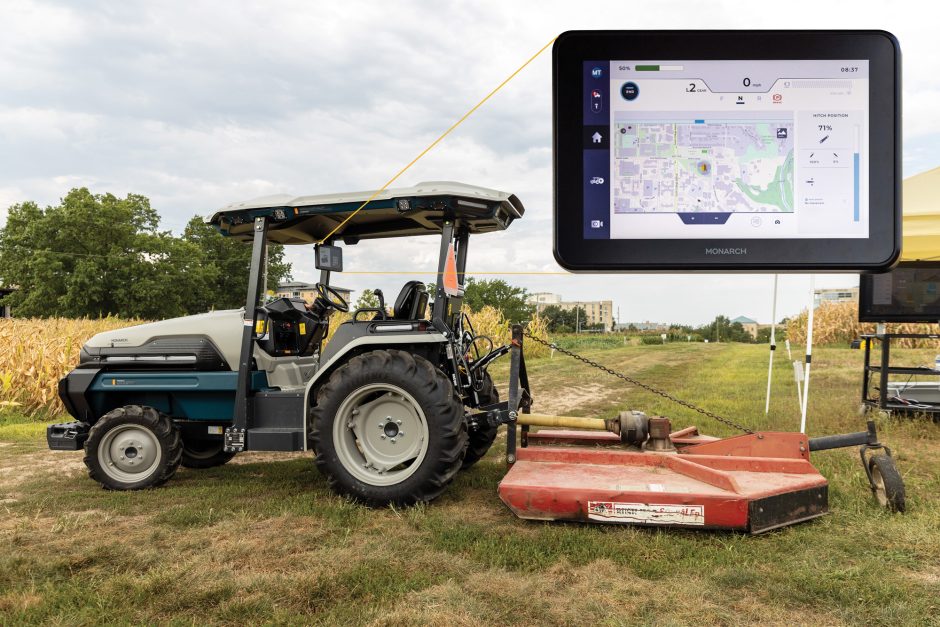
Published on Show Me Mizzou Jan. 10, 2024
Story by Kelsey Allen, BA, BJ ’10
Look out onto Sanborn Field, and you might see a tractor moving through the rows. It’s a small, gray vehicle that could be mistaken for a souped-up golf cart. But there’s one very nontraditional element of this particular tractor: There’s no one in it.
Known as the Monarch MK-V tractor, it is one of the nation’s first electric, autonomous tractors — and Mizzou is the first university to own one. Purchased with funding from a grant awarded by the Department of Agriculture’s Equipment Grants Program, the tractor will be used for teaching, research and demonstrations by the College of Agriculture, Food and Natural Resources (CAFNR); the College of Engineering; and MU Extension. “We are in a digital age of farming,” says Jianfeng Zhou, an associate professor in CAFNR. He calls it “one of the important tools to demonstrate how this technology can make a change to our farming system, how we can make our society more sustainable and how we can generate more impact on the next generation of farmers.”
The tractor is 100% electric and can operate for more than 10 hours from a four- to five-hour charge. Cameras and sensors allow it to be driven remotely for tasks such as plowing, harvesting and mowing. Its artificial intelligence capabilities are designed to collect data, which can give farmers information on field and crop health and long-term yields as well as alert them to problems such as irrigation leaks or crop discoloration.
Kent Shannon, a CAFNR assistant teaching professor in the agricultural systems technology degree program, is already using the tractor as a teaching tool to explore how farmers can use autonomy to more efficiently manage labor and optimize farm operations. In addition to studying the autonomous function of the tractor and the tractor’s ability to use artificial intelligence to enhance precision agriculture, researchers will work with MU Extension’s AgrAbility Program to understand how people with disabilities can benefit from this technology through the use of its autonomous features.
“We hope through this project we can demonstrate the farming of the future,” Zhou says.
To read more articles like this, become a Mizzou Alumni Association member and receive MIZZOU magazine in your mailbox. Click here to join.



